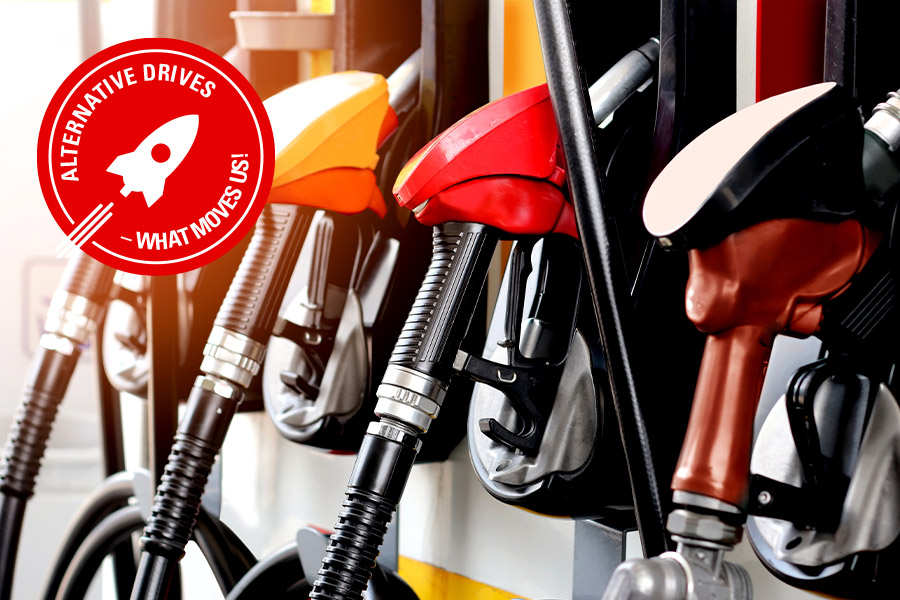Technological advancements in the battery technology field appear to be promising.
Does the combustion engine have a future? Is CO2-neutral a potential option? There signs are increasing. Big names such as Porsche or Bosch, for example, will continue to rely on the combustion engine for the future. The magic word is "E-fuels".
In order to limit global warming to a maximum of two degrees, as stipulated by the Paris Climate Protection Agreement, the CO2-emissions from mobility must be reduced to approaching zero in the next three decades. At present, this seems to be an unachievable goal. However, given the technological advancements made in the field of battery technology, for example, CO2-neutral mobility could actually be a possibility.
CO2-neutral combustion engine
Following the hype around vehicles with precisely this battery technology (BEV) in recent years, the calls for an open-technology approach to the mobility of the future are becoming ever louder. So-called "e-fuels" are one technology that is being mentioned more and more frequently in recent times. They are synthetic fuels produced using renewable energy from CO2 and hydrogen. Of course, these fuels are only CO2-neutral if the energy input really comes from renewable sources, i.e. from wind, water or sun.
There are many advantages to e-fuels
The technology combines a range of advantages compared with hybrid and BEV drives. E-fuels can be used with the existing petrol and diesel engines, no conversion is required. This also means that the mechanical drive train, which is completely omitted with pure electric vehicles, is retained. With far-reaching consequences: The loss of jobs in the automotive industry could at least be avoided to some extent. Providing e-fuels are classed as equally viable option alongside electric and hybrid vehicles.
Vehicle workshops would also welcome retaining the mechanical drive train. After all, the work volumes and therefore sales volumes for electric cars are lower in service. With e-fuels, companies would at least compensate for the loss of money that can be expected as e-mobility continues to grow. E-fuels have an almost unbeatable advantage over electric vehicles for drivers: E-fuels can only be transported in the same way as petrol or diesel fuel is currently transported. Refuelling will not change either, meaning that the existing fuel station network can be used.
Not yet suitable for the mass market
So what are we waiting for? Why not just get on with it? Unfortunately, it is not quite that simple. This is because synthetic fuels are still facing a few challenges. Although e-fuels can be produced today, the production process is still very expensive and the efficiency still leaves a lot to be desired. Most countries also don’t have the renewable energy sources and capacities to produce e-fuels for the mass market.
Bosch and Porsche invest in e-fuels
Two big names in the automotive industry are working on the technology, however, in the form of Bosch and the recent addition of Porsche. The aim: Industrialise e-fuels to reduce manufacturing costs. According to Bosch, pure fuel costs of 1.20 to 1.40 euros per litre could be achieved by 2030, excluding taxes. By 2050, costs could be reduced to one euro. Porsche Development Director Michael Steiner recently told us: "We have a team looking for suitable partners who want to build pilot systems with us and demonstrate that the entire process chain works and can be industrialised". Regarding combustion, hybrid and BEV drives, Michael Steiner says: "We are sure that these three drive technologies will continue to exist on the market in the medium term.".

